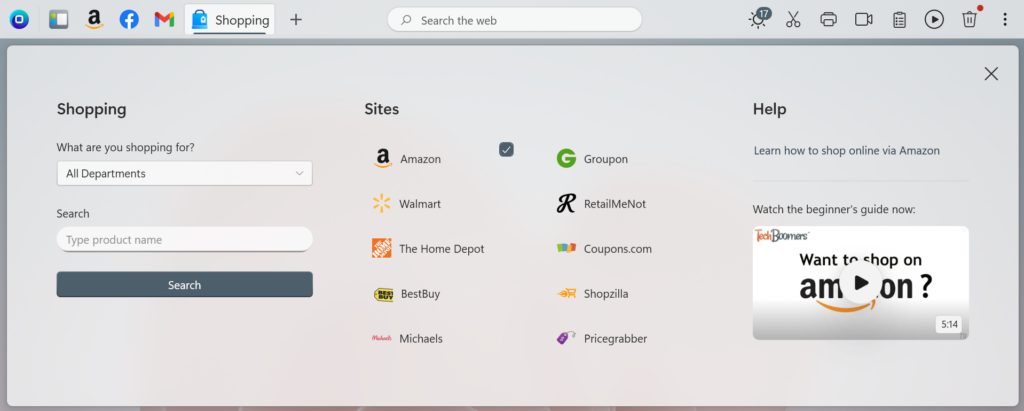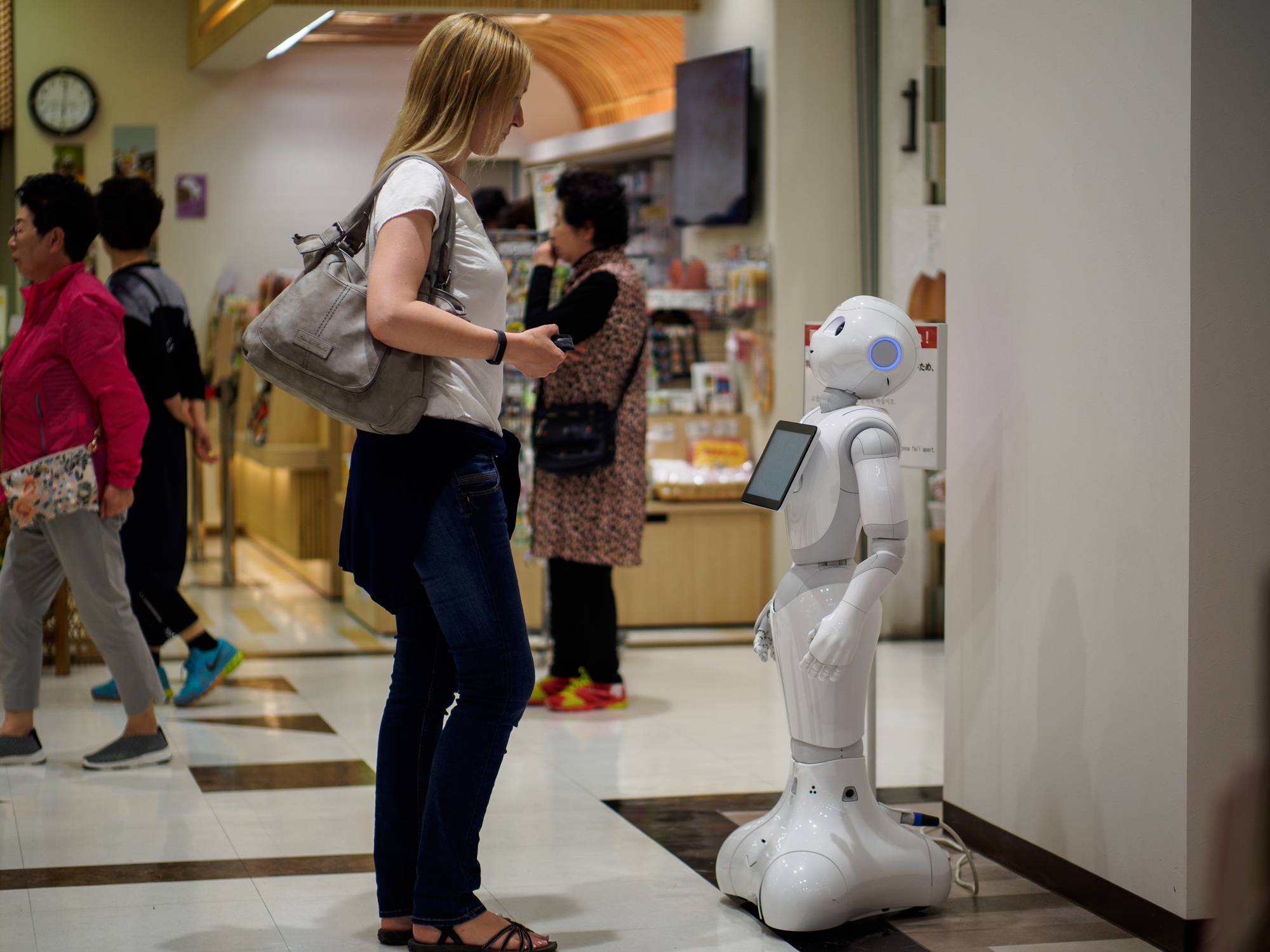There are three types of personal shoppers we’ll explore in this post.
The first is the personal shopper who curates items for you, based on your size, taste, season, needs, etc. The second is the personal shopper who fulfills orders on your behalf. The third is AI-powered personal shopping tools, which are emerging as AI is making its way to the front of the line as a convenient, quick way to anticipate your shopping needs. We wrap up this post with a look at OneLaunch’s shopping app, which will save online shoppers time.
Here’s a look at shopping assistants, their level of involvement, ease of use, and cost.
Personal Shoppers: Stylists, Designers, Assistants
This type of personal shopper is often called a personal stylist or personal shopping assistant. Personal stylists help shoppers achieve image goals through advice and suggested goods. They may work for big department stores or consult independently. Personal shoppers, like those at Bloomingdale’s and Nordstrom, select merchandise (typically fashion and furniture), and they make money through commissions and tips.
The best personal shoppers coordinate deliveries, remind you of special dates (such as birthdays or anniversaries), and arrange on-site tailoring. These professionals work with data to keep an eye on specific products, pricing, trends, and the like. They can be expensive.
Pros of personal style shoppers
- Saves time
- Personalized services
- Try things you might not otherwise consider
Cons of personal style shoppers
- Initial appointment/meeting may take hours
- Mismatched expectations
- Potential for costly recommendations influenced by shopper’s commission
Personal Shoppers: Order Fulfillment
This type of “personal” shopper is more of an order fulfillment person. You shop online or through an app, place an order, and the shopper picks items for you. If something is out, they’ll contact you through the app; however, most don’t suggest products or introduce new products to customers (but who knows! This could change!).
Most of these personal shoppers are found in grocery delivery services. For example, Kroger, Whole Foods, Uber Eats, Instacart, and Grubhub all rely on personal shoppers to select the items on your list (or make substitutions), place your order and deliver your groceries. At some stores, like Target, the person who shops for you may also be the person who delivers your items. At others, like Walmart, one person may do the picking, while another service provides delivery.
These are three of the most popular grocery/shopping delivery services:
1. Instacart: Delivering groceries for Aldi, Sam’s Club, Target, Costco and many local grocery and department store chains. Delivery fees start around $3.99 per order with a $35 minimum (plus driver tip), but they run promotions all the time. Instacart+ runs around $99/year (free trial) and includes unlimited free deliveries and other perks, like streaming service partnerships.
2. Shipt: With a $99/year membership you get free unlimited deliveries with $35 minimum orders (driver tip not included) for stores including Target, Walgreens, PetCo, Meijer, CVS and more (depending on where you live).
3. Walmart: You may notice Walmart’s name missing from the two biggies, Instacart and Shipt. That’s because Walmart manages its own personal shoppers and delivery personnel. Through a Walmart+ membership, which at press time ran around $12.95 per month or $98 per year, you get free same-day delivery, free streaming from partner apps, savings on Walmart gas, free shipping on online orders, and more.
Pros of personal shopping apps
- Saves time
- Greatly reduces in-store impulse purchases
- Offers stress-free shopping experience
- Convenience, especially for those who dislike in-store shopping
Cons of personal shopping apps
- Lack of control over quality (especially with produce and perishables)
- Minimum spend required for free delivery (around $35)
- Membership fees (Instacart runs around $99/year, depending on current offers)
AI Online Shopping Assistants
Retailers, including Amazon, are developing AI personal shoppers to anticipate consumers’ needs. AI shoppers come in many forms, including chatbots, browser extensions, and voice assistants. These virtual helpers will be programmed to perform similar tasks to human personal shoppers, including knowing when you’re running low on something and suggesting items that fit your request(s), taste, and budget.
One area where AI personal shoppers will reign supreme is their efficiency. While human personal shoppers may take time to search for the right item, AI personal shoppers can scan through thousands of products in mere seconds, a feat beyond that of even the most experienced human personal shoppers.
Amazon’s Alexa already can create shopping lists, order food for you, find products, and more. However, Amazon’s newest innovation, Rufus, is an AI personal shopping chatbot, that resides in the Amazon app (its services are Amazon exclusive). Although this AI personal shopper isn’t widely available yet (still in beta), its features are notable. You can speak or type your request, shop by occasion or purpose, find the best recommendations, get help comparing products, and more.
Pros of AI shopping
- Highly tailored shopping experience
- Convenient
- Reduce human error
- Save time
- Comparison shop
- Virtual try-on
- The more you use it, the better the service (AI is constantly learning)
Cons of AI shopping
- Collection of data (privacy concerns)
- Lack of human connection
- Can experience errors due to bugs, glitches, limitations, or design flaw(s)
OneLaunch Shopping App
If you’re looking for a personal shopper that’s free and easy to use, we invite you to try the OneLaunch shopping app. For starters, you can pin the Shopping app to your OneLaunch dock to have one-tap access to Amazon’s searchable database and websites for some of the biggest retailers, including Walmart, Home Depot, and Michaels.

To find an item, you can enter text in the search box or select from a list of categories, including Home & Kitchen, Books, Automotive, Baby and more. OneLaunch will then display any webpage results. Like other apps in OneLaunch, the Shopping app is free to use.
Pros
- Convenient
- Save time
- Pinned to your OneLaunch dock
Cons
- Search results limited to Amazon
- Unable to comparison shop
Photo 97035369 | Pierre Aden | Dreamstime.com










 Share On Twitter
Share On Twitter